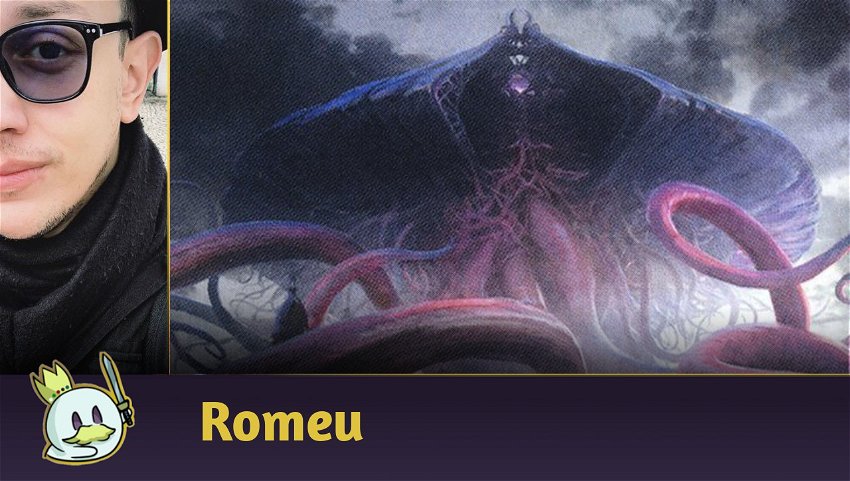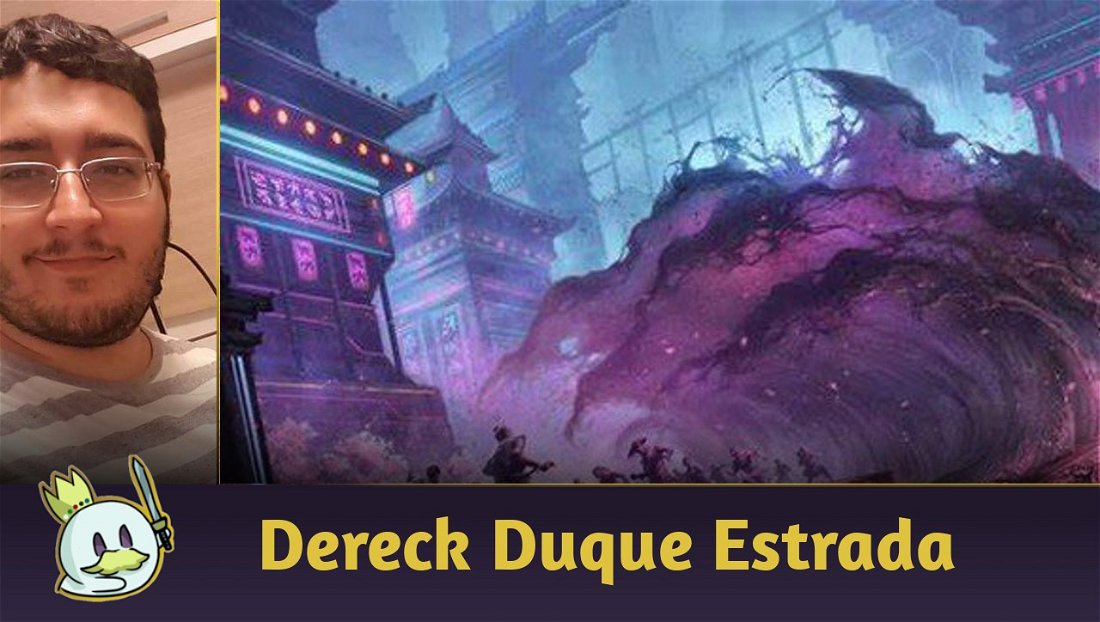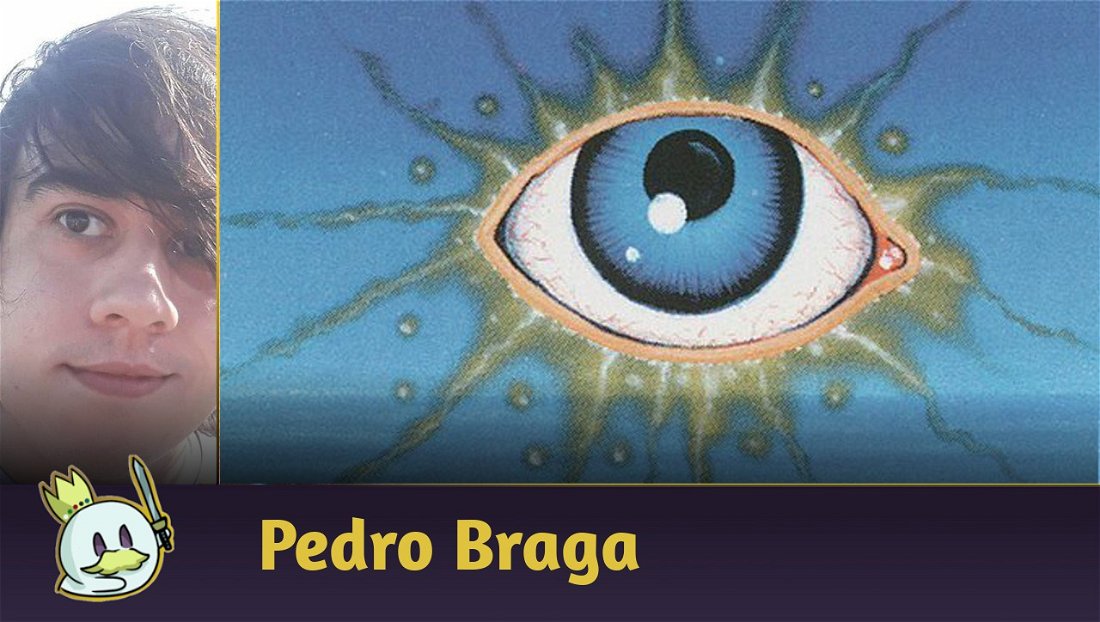The official previews of Shadows Over Innistrad Remastered have come to an end. The set will be exclusive to Magic Arena and will be available on the platform from March 21.
The release will feature iconic cards from Shadows Over Innistrad and Eldritch Moon that don't exist on digital yet, as well as reprints and a slew of cards from Innistrad's first block that will be Historic legal, such as Snapcaster Mage and Griselbrand.
For Explorer, this release brings the opportunity to reinforce some archetypes that already exist in the format, in addition to also introducing some historical Pioneer staples that can help leverage other less established archetypes in the Metagame.
Ad
In today's article, we'll assess the impact that the set can bring to both formats and which staples are really worth investing in Wildcards.
White

Blessed Alliance is a decent Sideboard answer against Heroic and Auras if those archetypes get too big, plus it also has lifegain and combat trick modules to hold off Aggro decks, and since it's coming out as an uncommon, the spell is worth using Wildcards from your collection.

Declaration in Stone is a decent reprint in Magic Arena that opens up the possibility for players to find the card while playing Draft and/or opening booster packs when finishing daily challenges. However, if you don't already have it in your collection, this reprint doesn't change the fact that there are more efficient options for most occasions, such as Fateful Absence.

Gryff's Boon is a suitable option for Auras and/or Heroic decks present in both formats, especially as part of the Light-Paws, Emperor's Voice toolbox, which makes it possible to pick it up with any Aura that you cast on a creature to then give it the necessary evasion to close the lethal damage.

Selfless Spirit is not the ubiquitous staple in Aggro that it once was. However, it offers guaranteed protection for any archetype that manages to behave it and still operates with a very relevant creature type for the Metagame.
In the long run, using four rare Wildcards to get it can be worth it if you don't have the patience to play Draft, and Selfless Spirit is also an instant staple if you play or intend to play with Spirits.

Hammer Time is a strategy whose potential is growing in Historic due to the recent release of supports like Kemba's Outfitter, and with Sigarda's Aid and Esper Sentinel in the format, we can conclude that the pieces are falling into place for the archetype to appear in Magic Arena as well.
Unfortunately, Open the Armory wasn't included to give the archetype the tutor it so badly needs, but if you like fast combos and/or the Hammer Time's proposal in Modern, Sigarda's Aid is a mandatory for the list.

Thalia, Heretic Cathar can have a significant impact on Historic as a means of punishing overly greedy manabases, as well as preventing infinite token combos and/or combos that create absurd board state, as is the case with Neoform + Dualcaster Mage.
That said, three mana for this effect isn't as impactful on the game as it once was, and Historic is fast enough to be able to bypass Thalia's locks and/or manage to play around her.

Archangel Avacyn was a powerful staple during its tenure in Standard, and sees occasional play in smaller decks, such as Azorius Flash in Pioneer. However, its presence in the Metagame is very small and unless you really want to pilot these strategies or play with such an iconic legend from Innistrad, I don't think it's worth spending mythic wildcards on it.
Ad
Blue

Pieces of the Puzzle became an Izzet Phoenix staple shortly after Strixhaven, when its strategy shifted from relying on speed to playing based on consistency. It is even possible to call it a mini-Dig Through Time, as it offers you good card selection and card advantage for only three mana.
Without Delve spells, Pieces of the Puzzle isn't as powerful as it can be in Explorer, but its arrival in Magic Arena adds a precious 2-for-1 resource to Izzet Phoenix.

The Lotus Combo still needs parts to be properly built in Explorer, and while we don't have Sylvan Scrying and Hidden Strings in Magic Arena, I don't think the archetype will have the same consistency it finds in Pioneer.
That said, Pore Over the Pages makes it one step closer to becoming a competitor in the digital environment, and perhaps has a place in Azorius variants that seek to take advantage of Lotus Field alongside Tale's End and other similar effects.

Summary Dismissal can be a good Sideboard option in the right Metagame where you really need to get rid of a string of spells on the stack and/or deal with something that can't be countered.

In addition to being another Izzet Phoenix staple, Thing in the Ice is also an efficient finisher on Control lists that want to bet on a shell focused on low-cost creatures and spells, and alongside Heartless Act, it can work as a quick wincondition in the right list - but keep in mind that even if you remove all counters from it with Heartless Act, you'll still have to cast another spell to transform it.
I'm truly interested in his potential alongside Lurrus of the Dream-Den and Snapcaster Mage in Historic, as the Grixis Lurrus was a deck that I piloted for a long time on Pioneer before the fateful Companion's ban.
Black

Lifegain, discard, and removal: Collective Brutality does a little bit of everything you could want, but none of them are masterfully executed. Its inclusion in the Sideboard or even the Maindeck is great when you need to deal with small creature decks like Burn while also finding a significant amount of Control archetypes in the format.
Today, Explorer doesn't have as much space for Aggro with small creatures, and Humans makes Collective Brutality a less punishing interaction against them, while the fact that it only chooses Instants or Sorceries limits its scope when facing Abzan Greasefang, for example. That said, the card has been a Sideboard staple since its release in Eldritch Moon, and having a few copies of it in your collection could be useful, should the Metagame change.

Honorable mention. Haunted Dead and Prized Amalgam were part of Dredgeless Dredge when Pioneer was still in its first year. It was never very present in the Metagame, and Greasefang will probably still be Explorer's best graveyard-based strategy, but the potential of both cards in Historic is still unknown.
Ad

Liliana, the Last Hope was once a multi-format staple, but has lost ground to Power Creep recently. That said, the Planeswalker is still an excellent way to deal with small creatures while resorting to your creatures in attrition matchups, and it can find a slot in Magic Arena's Midranges.
Red

Bedlam Reveler can appear on Spell-Based Aggro lists in Historic, such as Burn or Mono Red Phoenix. But in Pioneer, the card is still waiting for its moment to impact the Metagame like it did in Modern, although the absence of Delve Spells opens up a space for this creature to serve as a payoff in a more proactive version of Izzet Phoenix.

The combo of Narset, Parter of Veils with Collective Defiance (where you choose the module of the opponent discarding their hand and drawing that same number of cards) was well known in Pioneer for some time and even placed Izzet Control in the Metagame spotlight. So, we can expect this strategy to show up in Explorer now, much to the frustration of players in Ranked, and it might even appear in Jeskai Control in Explorer.
Green

Eldritch Evolution and Traverse the Ulvenwald will greatly increase the consistency of Abzan Greasefang starting next week, so they are the two most important additions to Magic Arena. This will probably be the test for the permanence of the archetype in Explorer and Pioneer, due to the already known hate that the deck has on the digital platform for providing an unpleasant game experience in some matches.
If you play Greasefang, investing eight rare wildcards into this duo will be a must.

Seasons Past is one of the most iconic cards in the Shadows block due to its unique effect that made it evident in a Pro Tour by the hands of Jon Finkel. Since then, a list dedicated to it has never been very successful in the competitive scene, but who knows, Magic Arena does not bring the necessary elements for creative players to find the ideal home for it?

Vessel of Nascency is another important support for the recent Abzan Greasefang shells, and has also been present in Delirium decks for some time on Pioneer. Since it's a common, I suppose players won't have a hard time adding it to their collections.

Duskwatch Recruiter deserves an honorable mention for its historical context as an efficient payoff for infinite mana combos on creature-focused archetypes. And since its mana cost is within the scope of Collected Company, players can find a home for it in Historic.
Multicolored

Anguished Unmaking was once one of the best removals available on Pioneer, and its re-release in the digital environment as Uncommon opens up a lot of space for players who like to develop Budget decks.
Ad
Today, it doesn't seem as important to Explorer or Historic, but might deserve a slot in Five-Color Niv-Mizzet.

Grim Flayer is a staple of Delirium decks, but has lost ground on Pioneer since Uro, Titan of Nature's Wrath was banned from the format. In Arena, players will likely try to try him alongside Tarmogoyf in Historic, though both seem to lack a strong enough shell since Mishra's Bauble is banned.

Nahiri, the Harbinger is another one-of to Five-Color Niv-Mizzet decks due to its flexibility and color matching, but I don't see it having a home in any other archetype either in Historic or Explorer.

With Spell Queller, we can assume that Bant Spirits is finally complete in Explorer. However, another variant that has been growing in the last month in the format is Azorius, where Spell Queller complements the Mono-Blue Spirits' shell alongside some occasional Sideboard choices, making it more resilient.
Definitely one of the best additions to the set for Magic Arena, and worth using four rare wildcards if you like Tempo-oriented strategies.
Colorless

Emrakul, the Promised End is an excellent payoff for Aetherworks Marvel which, while not a very efficient strategy, is fun for some players. I'm curious to know how exactly Wizards programmed Magic Arena to handle controlling the opponent's turn effect that Eldrazi has, given that it's a new element to the platform.
Land

Reprinted as Uncommons, Reveal Lands automatically became the best cycle of budget lands in Magic Arena, and I recommend any player spend Uncommon Wildcards on a set of them to play alongside lands with basic land types like those from Kaldheim or Dominaria United, to increase the consistency of your manabase and test ideas before investing in rare lands that you don't already have.
Shadows of the Past in Historic
In addition to the above cards, Shadows Over Innistrad Remastered will feature reprints of 81 famous cards from the first Innistrad block. Their inclusion in Drafts will be rotating, that is, each week, a different bundle of cards will be available. However, players will be able to craft them using Wildcards.
All of these will only be legal in Historic, and as it is a format that has become extremely distinct from what we follow and more difficult to track recent results in the Metagame, I cannot speculate as much as how much these additions may affect the competitive landscape. However, below is the list of the most important cards among the reprints and a brief analysis of what we can expect from them.

Ad
Among them, Drogskol Captain and Geist of Saint Traft stand out as a support for Spirits to exist in the format. Griselbrand looks interesting, but Atraxa, Grand Unifier still seems like a more attractive option due to its immediate impact without major concessions.
Huntmaster of the Fells was once a Modern staple, but it's likely that its golden years have passed due to the Power Creep. Invisible Stalker is an excellent addition to Azorius Auras, while the fate of Past in Flames and Lingering Souls are still uncertain.
Finally, Snapcaster Mage is probably the most playable card among the reprints: Izzet Wizards is already a known strategy in Historic, Jeskai Control can easily benefit from it, and the fact that Lurrus of the Dream-Den and Kolaghan's Command exists in Historic makes room for a possible Grixis shell alongside Fatal Push.
Conclusion
Shadows Over Innistrad Remastered has brought important elements to Magic Arena that will help unify Explorer with Pioneer in a few years' time. The absence of a few more punctual cards might make a difference eventually, but it's nothing that can't be fixed with a new bundle.
The set seems concise enough to invest in Drafts and build a good collection, but I wouldn't recommend investing in buying booster packs, as it has a relatively large number of cards released and, as we noticed above, only a select number of them have the potential to be relevant in the Metagame.
Thanks for reading!








— Kommentare0
Sei der erste der kommentiert